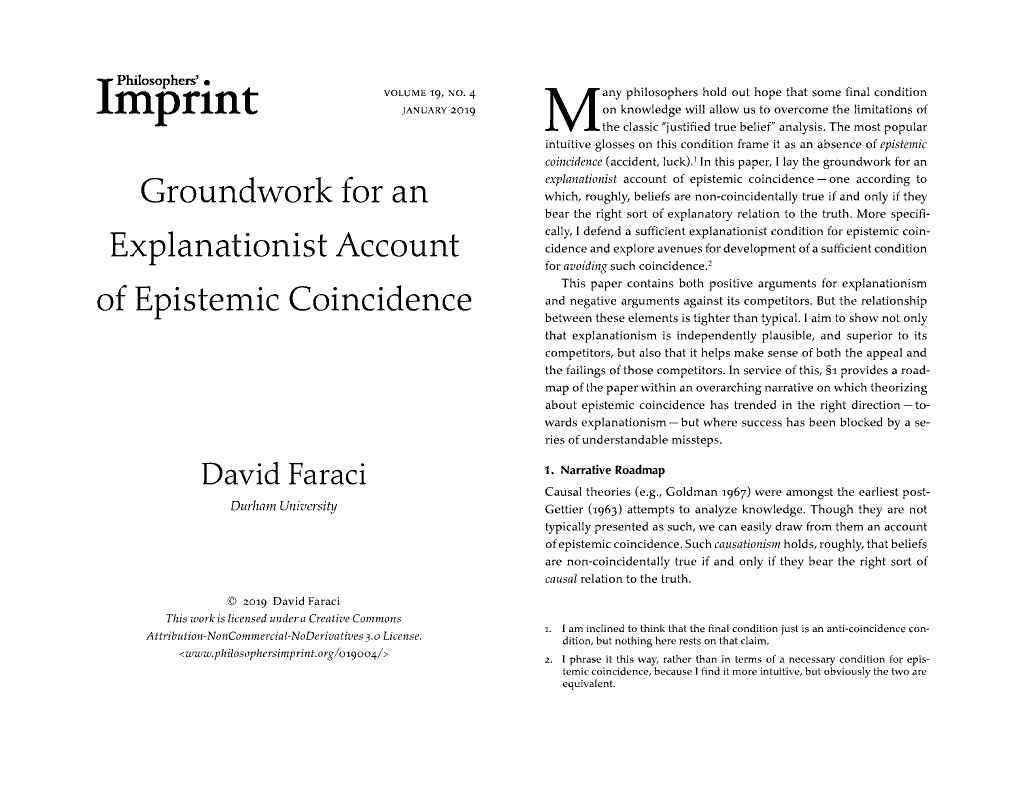Groundwork for an Explanationist Account of Epistemic Coincidence
Skip other details (including permanent urls, DOI, citation information): This work is licensed under a Creative Commons Attribution-NonCommercial-NoDerivatives 4.0 International License. Please contact [email protected] to use this work in a way not covered by the license.
For more information, read Michigan Publishing's access and usage policy.
Abstract
Many philosophers hold out hope that some final condition on knowledge will allow us to overcome the limitations of the classic "justified true belief" analysis. The most popular intuitive glosses on this condition frame it as an absence of epistemic coincidence (accident, luck). In this paper, I lay the groundwork for an explanationist account of epistemic coincidence—one according to which, roughly, beliefs are non-coincidentally true if and only if they bear the right sort of explanatory relation to the truth. The paper contains both positive arguments for explanationism and negative arguments against its competitors: views that understand coincidence in terms of causal, modal, and/or counterfactual relations. But the relationship between these elements is tighter than typical. I aim to show not only that explanationism is independently plausible, and superior to its competitors, but also that it helps make sense of both the appeal and failings of those competitors.



